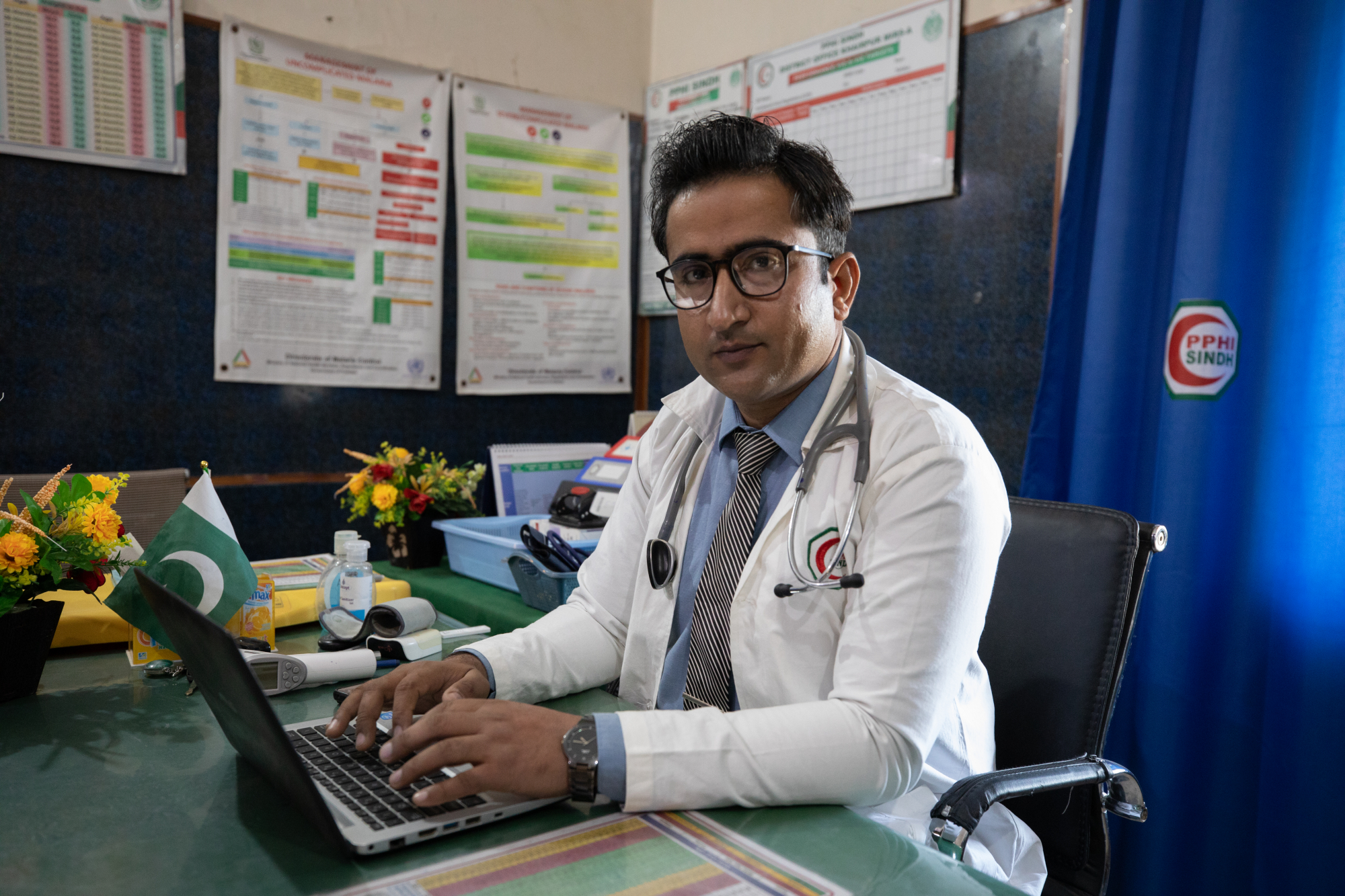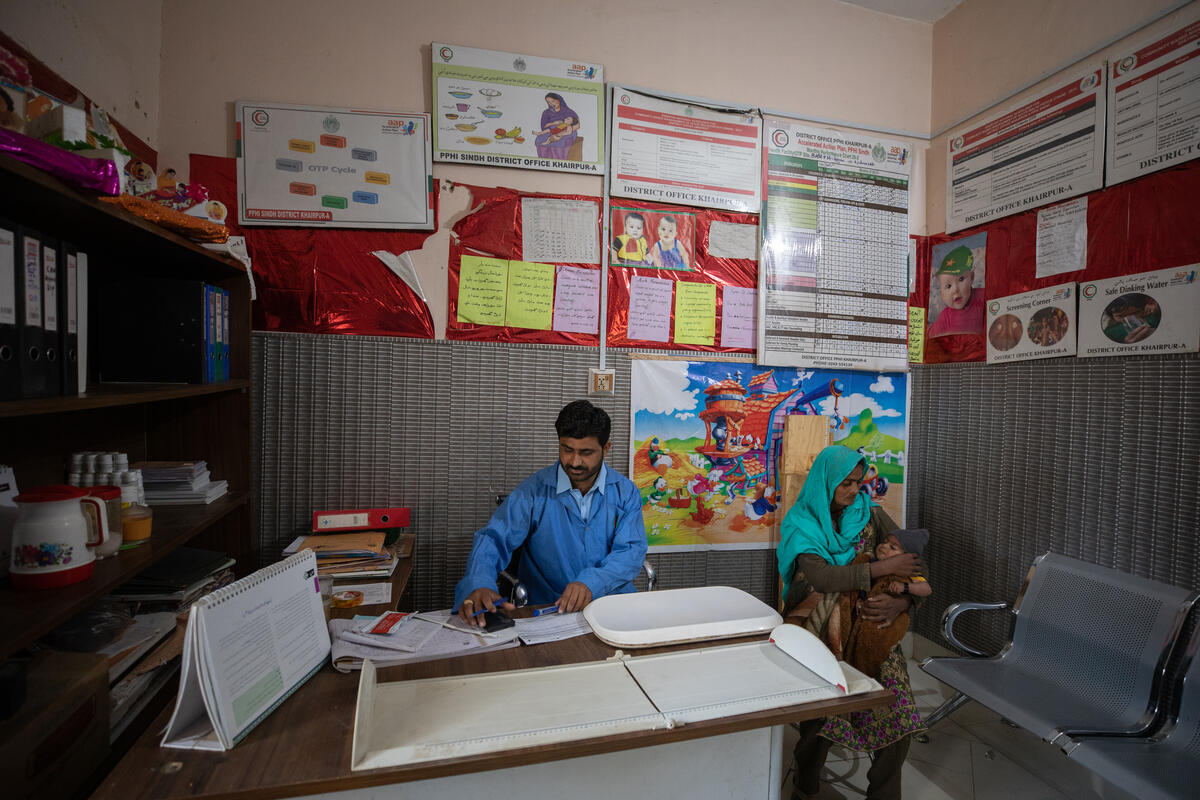A Blessing in Disguise: Dr. Hanif’s Story
In early 2023, major flooding devastated parts of Pakistan, killing an estimated 159 people and injuring another 264.
Dr. Muhammad Hanif works at a Basic Health Unit (BHU) in the flood affected district of Khairpur, in Sindh province. He showed admirable dedication and commitment to continuing the operations of the BHU, walking six miles to reach the medical facility every day. Amidst a dire shortage of resources, medicines, and beds, he and his team worked tirelessly to treat severe cases of injuries, malaria, and malnutrition.
This is his experience in his own words:
My name is Muhammad Hanif and I [work] at BHU (Basic Health Unit) Thari Mirwah, in district Khairpur. This centre is [open] 24 hours a day, seven days a week and our [Outpatient Department] is open for six hours a day, and here we basically deal with primary healthcare.
Before the heavy rains and floods, the catchment population for this medical centre was 26,000; however, during the floods, this was the only hospital that was running in the whole [area]. Not one other hospital remained open.
Our entire staff is comprised of locals, so all their homes were also destroyed in the floods… [and] our medical centre was also submerged three feet under water, but despite the odds we managed to keep it open, and… continued to work tirelessly to help the affected flood victims. During the peak of the heavy rains and floods, we [also] set up a medical camp in a village about two kilometers away.
When the [flooding happened], the whole region became like an island stranded in the middle of nowhere. All the routes and roads to this area were completely cut off – as they were all destroyed – and the entire transport system collapsed. This made getting support and emergency supplies from foreign agencies and various donor agencies so challenging.
The tragedy is that very minimal amounts of medicines and supplies were able to reach us, so we had to start a grading system. We could only provide medicines to people who were at the highest risk of losing their lives, due to which other patients whose illnesses were less serious suffered tremendously.

I am also a local of this area; my house was damaged in the floods, and every day I had to walk on foot to the clinic and cover about six miles. It was impossible to use my car to reach the clinic or bike because all the roads were submerged in water, so I had to walk with a lot of difficulty.
We witnessed several extreme cases of malaria and high-grade fever and faced a shortage of beds at the health facility… There were long lines of mothers holding their sick children in their arms, urging the doctors to tend to them due to their dire conditions.
[Additionally], some children were so severely injured because there was debris that kept falling on them when the houses were falling apart. So, I was dealing with injured children, I was dealing with stitches, I was dealing with stabilizing the children who were infected with malaria. I was completely overwhelmed and along with all this, there was also an extreme shortage of medicine.
We worked with such limited resources and limited medicines, but we are thankful to God that Save the Children really helped us out in our moment of need. I would say this organization was a real blessing in disguise, like a cold breeze in a sweltering heat wave.

Due to Save the Children and the assistance they provided to this health facility, we were able to regain control over the situation and I have immense gratitude for their efforts. Since this organization has stepped in, the morbidity and mortality rates have gone down drastically so it has been a great relief for us.
The only reason I endured all this hardship was so that I could save the lives of my people who were suffering tremendously. The Save the Children organization provided us with medicines, and we have immense gratitude for their efforts and the services that they provided.


